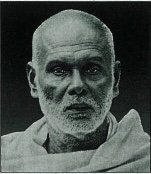BY UDAYABHANU L. P. PANICKAR
Religious conversion has become a serious subject among Indians all over the world. My home state of Kerala in India is very advanced in the fields of religious tolerance, education and health care. The main reason for this was the renaissance brought about by the teachings and dedicated work of Sree Narayana Guru [1856?1928] and his followers. Although he has often been misunderstood on the subject, on numerous occasions Narayana Guru clearly explained his position on religious conversions. He converted and reconverted people from one religion to another. He did not believe that religious conversions were in any way a threat to society. At the same time he very strongly believed that any such conversion must be executed purely on the basis of a person’s belief. He decried conversion made for any kind of materialistic or temporary benefits, convenience, or as an escape from discrimination and religious persecution. These principles form the criteria for his support of conversions and re-conversions.
During his time, for example, a family of the Kannoor community converted to Christianity for certain benefits, but not out of any change of belief. After some time this family desired to convert back, but their previous community opposed this re-conversion. Narayana Guru intervened and asked all the family and community leaders concerned to take back the family into the community. His arguments were convincing, and an amicable return was effected.
In Neyyatinkara town, there were some families who converted to Christianity due to the discrimination and religious persecution existing at that time against the lower strata of Hindus. But after witnessing the progress made due to the work of Narayana Guru and his disciples, these families wanted to convert back to Hinduism. Again, the opposition of their community was overcome, and Narayana Guru happily converted them back.
In the village of Vazhappalli, near Changanashery, there were a limited number of families of a community known as Pichanaattu Kuruppanmar. They were small in number, and in a very difficult situation during Narayana Guru’s time. In some respects they were considered low in the social stratum. But at the same time they were allowed entry into the temples and adjacent roads, at a time when a lot of other low-caste communities were not given such access. However, the Hindu communities at the higher end of the social stratum did not accept them. This, coupled with the limited number of members in their own community, made it difficult for them to function socially, and they faced increasing isolation. Finally, the leader of this group, Mr. Krishnan Vidyar, converted to Christianity–a conversion of convenience. Mr. Mooloor Padmanabha Panickar, a disciple of Narayana Guru, informed him of the situation. Panickar requested that the Pichanaattu Kuruppanmar be better integrated into the community so that such conversion could be avoided in the future. Narayana Guru accepted this proposal, and then personally accepted the Pichanaattu Kuruppanmar into the community at a large public meeting which included leaders of other religious groups.
Mahatma Gandhi, during his visit to Shivagiri to meet Narayana Guru, pointedly asked, “Is religious conversion necessary for spiritual salvation?” Narayana Guru replied, “Religious conversion is not needed for spiritual salvation.” Gandhiji then asked if the Hindu religion is adequate for this purpose. Narayana Guru replied, “Hindu religion is perfectly adequate for salvation.”
Narayana Guru offered this guidance to Sree Narayana Dharma Paripalana Yogam, an organization of his followers: “Religious renaissance should not be an effort of converting from one religion to another. Our organization should be one that will unite all humans. Religion should permit freedom of belief. Religion should be acceptable to the intellectual mind, and it should lead common people to do pure, good and noble deeds (Sanatana Dharma) in life. We feel that all the people who believe in this eternal truth should join together under this organization. People who think that religious conversion is the only way of eradicating discrimination and religious persecution can consider this as a religious conversion and at the same time a declaration of independence from discrimination.”
According to Narayana Guru, all religions guide people to the eternal truth or prepare them to understand the Absolute Truth. Once that is done, people will find the truth or God themselves. In his opinion, all religions are tools for the realization of the ultimate truth. None of them can claim to be the only source or the only way. The common man must follow the path or religion of his choice. The spiritual guidelines given by the religious personalities were according to the need of the place and circumstances existing at that particular period. He taught that as changes occur, some of those principles may need modifications. Maybe the interpretations of those teachings need to be reevaluated and restated, a responsibility which belongs to the intellectuals and spiritual personalities. They should restate the guiding principles in a manner which eradicate anti-social and discriminatory elements.
In Narayana Guru’s opinion, religion has two aspects, internal and external. If the conversion is for the external aspect, that is not a conversion of religion. That is only a social change. As to the internal or the spiritual values, that is always changing as the individual’s ability to think and contemplate advances. That change cannot be made with any external force. It has to come from within the people themselves, which only happens as the depth of spiritual knowledge increases. He categorically stated that anyone who does not believe in a religion must not stay in that religion.
Udayabhanu L.P. Panickaris one of the founders of Sree Narayana Association headquartered at New York and its First Secretary. Contact: P.O. Box 390, Deer Park, New York 11720-0390 USA.


